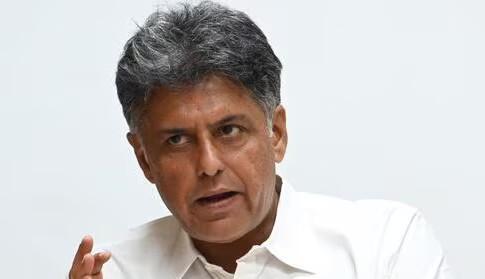
Against Constitution: Tewari on bills to remove jailed PM, CMs
The Indian government has taken a bold step by presenting three bills in Parliament aimed at removing Prime Ministers, Chief Ministers, and Ministers facing serious criminal charges. However, not everyone is pleased with this move, especially Congress MP Manish Tewari, who believes that these bills are against the basic structure of the Constitution.
The bills, which were presented by Union Minister Amit Shah, aim to empower the President of India to remove the Prime Minister, Chief Ministers, and Ministers who are facing serious criminal charges and are unable to function effectively. According to the bills, the President can remove these leaders if they are unable to attend Parliament sessions or if their presence is deemed necessary for the smooth functioning of the government.
However, Tewari, who is a seasoned politician and a former Union Minister, is not convinced that these bills are constitutional. In a recent statement, he said that the Indian Constitution is based on the principle of “innocent until proven guilty,” which means that a person is considered innocent until they are found guilty in a court of law.
Tewari believes that the bills are an attempt to circumvent this principle and allow the President to remove leaders based on allegations rather than proven guilt. He also pointed out that the bills do not provide for any mechanism to ensure that the President’s decision is fair and impartial.
Furthermore, Tewari expressed concerns over the potential misuse of state instrumentalities under these bills. He said that the bills give the President enormous powers, which can be misused to target political opponents or individuals who are not favored by the government.
Tewari’s concerns are not unfounded. In the past, there have been instances where governments have used their power to target political opponents or individuals who are not favored by them. For example, during the Emergency of 1975, the Indira Gandhi-led government used its power to detain and harass political opponents, including opposition leaders and journalists.
Tewari’s opponents have accused him of being biased and trying to protect his party’s interests. However, he has maintained that his concerns are based on the principles of democracy and the rule of law.
The bills have also been criticized by other opposition parties, who have accused the government of trying to undermine the Constitution and the democratic process. The Communist Party of India (Marxist) has said that the bills are an attempt to “subvert the Constitution” and that they will not allow the government to pass these bills without a fight.
The Indian National Congress has also criticized the bills, saying that they are an attempt to “bypass the democratic process” and that they will not allow the government to pass these bills without a fight. The party has called for a united opposition to fight against the bills and protect the Constitution.
In conclusion, the bills presented by Union Minister Amit Shah are a cause for concern, not only for the opposition parties but also for the citizens of India. The bills give the President enormous powers, which can be misused to target political opponents or individuals who are not favored by the government. It is essential that the government and the opposition parties work together to ensure that the Constitution is protected and that the democratic process is not subverted.
Reference:






